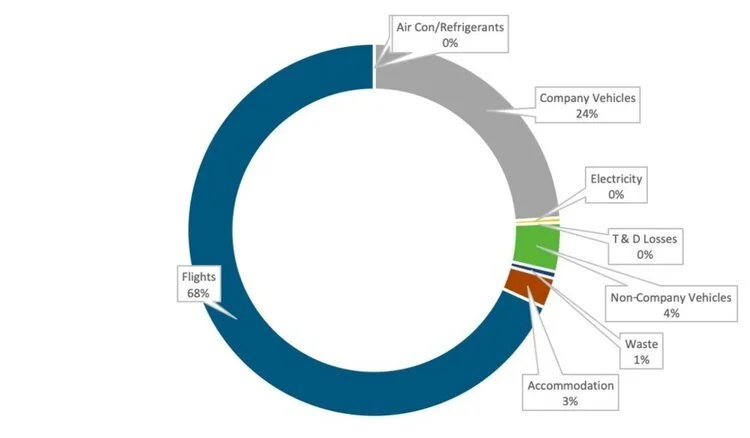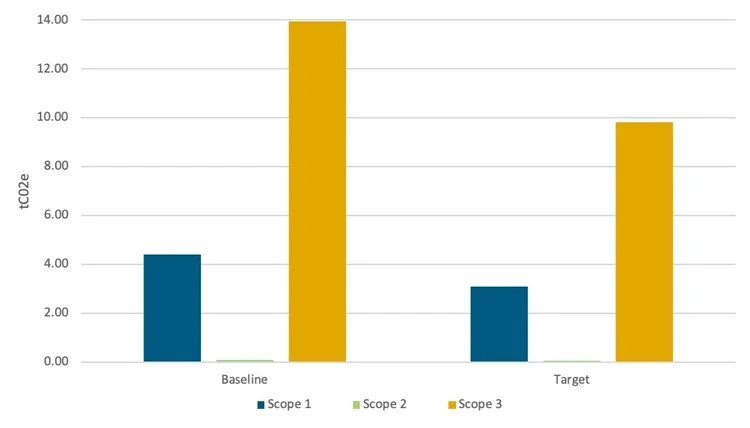
Our Carbon Footprint
Our Carbon Footprint
Ekos’ carbon footprint covers the emissions of all staff offices located in Ōtautahi (Christchurch), Whakatū (Nelson), and Te Whanganui a Tara (Wellington). It also includes all business travel that relates to the operations of Ekos. Our emissions are dominated by our scope 3 emissions (76%), followed by our scope 1 emissions ( 24%), and lastly our scope 2 emissions (0%).
Our carbon reduction target includes scope 1, scope 2 and the scope 3 categories business travel & waste. Catalyst has externally reviewed our 2019 and 2020 financial year footprint.
Scope 1 and 2 emissions are our direct emissions. Scope 1 emissions arise from our stationary fuel use and our company vehicles. Scope 2 emissions arise from our purchased electricity.
A summary of GHG emissions (tCO2e) is presented below:
Our main sources of emissions (see figure below) are linked to flights (68%) and company vehicles (24%). Other activities such as non-company vehicles, waste and accommodation amount to just 8% of our total emissions.
Our Target
Ekos commits to reducing our absolute scope 1 and 2 GHG emissions by 42% by 2030 from a 2020 base year. We also commit to reducing absolute scope 3 emissions from business travel, accommodation and waste by 42% within the same time frame.
Ekos reduction targets
Next Steps
Business travel (mainly flights) and company vehicles dominate our footprint. These emissions have increased from 2019 to 2020, with business travel increasing from 11.23 tonnes to 12.56 tonnes, and company vehicles increasing from 0.40 tonnes to 4.4 tonnes. Our increase in both activities is due partly to our growing team and an increase in the frequency of travel to follow up business opportunities nationwide. This increase is reflected in Ekos’ growth of roughly 300% from 2019 to 2020.
Ekos’ culture is one in which we endeavour to lead by example and enact the change we want to see in the world. Employees live this ethos and already take action at a personal level to reduce both their carbon footprint as well as other forms of environmental footprint (e.g. waste, water consumption). This naturally has an effect on the businesses overall footprint, and we will continue to support our team to live a ‘low impact’ lifestyle.
Specific actions planned for the new year to reduce our footprint include:
Intentional hiring policy to service regions where Ekos is operating
Setting an official “only when necessary” flying policy
Monitoring and reporting our emissions on a quarterly basis to the team
Formalising a ‘working from home’ policy to reduce staff commuting emissions
Providing home office equipment for staff members wishing to work from a home office
Where business travel is necessary, low emissions transport will be encouraged. This includes educating staff on the availability of public transport options prior to their departure and setting up business accounts with low emission companies or companies that have offset
Aim to upgrade the company vehicle to a more fuel efficient vehicle (e.g. electric/hybrid)



